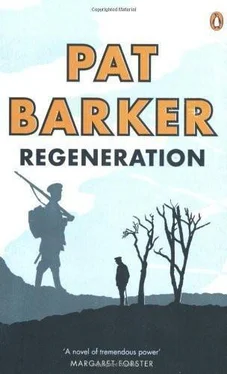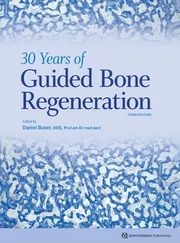Willard raised himself on to one elbow. It was extraordinary the impression he created, that mixture of immobility and power. Like a bull seal dragging itself across rocks. ‘You think I’m malingering.’
‘I know you’re not.’
‘But you’ve just said I am.’
‘No.’
‘If there’s no injury to the spine, then why can’t I walk?’
‘I think you know why.’
Willard gave a short, hissing laugh. ‘I know what you want me to say. I can’t walk because I don’t want to go back.’ He glared at Rivers. ‘Well, I won’t say it. It would be tantamount to an admission of cowardice.’
Rivers picked up his cap and cane. ‘Not in my book.’ He was aware of Willard watching him. ‘It’s true paralysis occurs because a man wants to save his life. He doesn’t want to go forward, and take part in some hopeless attack. But neither is he prepared to run away.’ He smiled. ‘Paralysis is no use to a coward, Mr Willard. A coward needs his legs.’
Willard didn’t reply, though Rivers thought he detected a slight relaxation of tension. The bone structure of Willard’s face was strong almost to the point of brutality, and his eyes were a curious shade of pale blue. There was a sheen on his hair and skin like the gloss on the coat of an animal. He’d been something of an athlete before the war, though Rivers suspected he had never been remarkable for depth of intelligence. ‘Your wife’s coming to see you this afternoon, isn’t she?’
Willard’s eyes went to the photograph on his washstand. ‘Yes.’
‘Why don’t you get dressed? There’s no reason for you to be in bed. And if you got dressed you could go out into the grounds. It’d be a lot pleasanter for your wife.’
Willard thought about it, reluctant to concede anything that might suggest his illness was not purely physical. ‘Yes, all right.’
‘Good. I’ll send an orderly in to help you with your boots.’
Sassoon arrived at the Conservative Club about ten minutes early. ‘Captain Rivers isn’t here yet, sir,’ the porter said. ‘But if you’d like to wait in the morning room, I’m sure he won’t be long. Up the stairs and first right.’
The staircase was of twisting marble, almost too imposing for the size of the hall, like a Roman nose on an unprepossessing face. As Sassoon climbed, he passed portraits of Edinburgh worthies of the past, men with white beards and wing collars, whose gold watch-chains and fobs nestled on swelling abdomens. His first thought on entering the morning room was that somebody with a taste for practical jokes had cut the Edinburgh worthies out of their frames and stuck them in chairs all over the room. Everywhere saurian heads and necks peered out of wing armchairs, looking at the young man in the doorway with the automatic approval his uniform evoked, and then — or was he perhaps being oversensitive? — with a slight ambivalence, a growing doubt, as they worked out what the blue badge on his tunic meant. Perhaps it was just oversensitivity, for you saw that same look of mingled admiration and apprehension, wherever you went. Old men were often ambivalent about young men in uniform, and rightly so, when you considered how very ambivalent the young men felt about them.
The chairs, which looked uncomfortable, were very comfortable indeed. Sassoon, glad to be away from the boiled cabbage and custard smells of the Craiglockhart dining room, sank back and closed his eyes. Further along, at a table by the window, two old men were nattering about the war. Both had sons at the front, it seemed, or was it only one? No, the other was trapped in England, apparently, on a training course. He listened to the rumble of their voices and felt a well-practised hatred begin to flow. It needed only a slighting remark about the courage of the German Army to rouse him to real fury, and very soon it came. He was aware of something sexual in this anger. He looked at the cloth straining across their broad backs, at the folds of beef-pink skin that overlapped their collars, and thought, with uncharacteristic crudity, When did you two last get it up?
Gordon’s death had woken him up, there was no doubt. That moment when he’d come down to breakfast, glanced at the casualty lists and seen Gordon’s name had been a turning point of sorts, though he didn’t yet know in which direction he would turn. It seemed to him that his first month at Craiglockhart had been spent in a kind of sleep. Too much steam pudding, too much putting little balls into holes. Looking round the room, he knew why he felt sickened by himself, why his fuming against elderly men with sons at the front no longer satisfied him. It was because he’d given in, lapsed, pretended to himself that he was still actively protesting whereas in reality he’d let himself be pacified, sucked into the comforting routine, the uneventfulness of Craiglockhart life. As Rivers had meant him to be.
He got up and began looking at the pictures that lined the walls. The portraits here were not of the professional men and civic dignitaries of the recent past, but of the landed gentry of generations before that, shown, for the most part, either setting off to, or returning from, the hunt. He was obviously not destined to get away from memories of Gordon and hunting today. Walking from picture to picture, he remembered the notebook he’d taken with him into the trenches on his first tour of duty. It had contained nothing but bare details of past hunts, where they’d found, how far he’d run, whether they’d killed. On and on. A terribly meaningless little set of squiggles it would have seemed to anybody else, but for him it had contained the Sussex lanes, the mists, the drizzle, the baying of hounds, clods flying from under the horses’ feet, staggering into the house, bones aching, reliving the hunt over dinner, and then, after dinner, shadows on the wall of the old nursery and Gordon’s face in the firelight, the scent of logs, the warmth, his whole face feeling numbed and swollen in the heat. His mind switched to his last few hours in France when, already wounded in the shoulder, he’d careered along a German trench, slinging Mills bombs to left and right, shouting, ‘View halloa!’ That was the moment, he thought. That was when the old Sassoon had cracked wide open and something new had stepped out of the shell. Bless you, my dear , Eddie Marsh had written, when he told him about it. Never take it more seriously than that . But Eddie had missed the point. Hunting had always been serious. Every bit as serious as war.
‘Sorry I’m late,’ Rivers said, coming up behind him. ‘I meant to be here when you arrived.’
‘That’s all right. These old codgers’ve been keeping me amused.’ He glanced round quickly. ‘I mean the ones on the wall.’
‘It is rather a geriatric gathering, isn’t it?’ Rivers sat down. ‘Would you like a drink?’ He raised his arm and a white-jacketed, elderly waiter came tottering across. ‘Gin and tonic for me, I think. What’ll you have, Siegfried?’
‘The same, please.’
Rivers’s inspection of the menu was confined to identifying which particular variety of poached fish was currently on offer. Sassoon gave the matter more thought. Rivers watched him as he pored over the menu and thought how much easier his life would have been if they’d sent Siegfried somewhere else. It wasn’t simply the discomfort of having to express views he was no longer sure he held — though, as a scientist, he did find that acutely uncomfortable. No, it was more than that. Every case posed implicit questions about the individual costs of the war, and never more so than in the run up to a round of Medical Boards, when the MOs had to decide which men were fit to return to duty. This would have been easier if he could have believed, as Lewis Yealland, for example, believed, that men who broke down were degenerates whose weakness would have caused them to break down, eventually, even in civilian life, but Rivers could see no evidence of that. The vast majority of his patients had no record of any mental trouble. And as soon as you accepted that the man’s breakdown was a consequence of his war experience rather than of his own innate weakness, then inevitably the war became the issue. And the therapy was a test, not only of the genuineness of the individual’s symptoms, but also of the validity of the demands the war was making on him. Rivers had survived partly by suppressing his awareness of this. But then along came Sassoon and made the justifiability of the war a matter for constant, open debate, and that suppression was no longer possible. At times it seemed to Rivers that all his other patients were the anvil and that Sassoon was the hammer. Inevitably there were times when he resented this. As a civilian, Rivers’s life had consisted of asking questions, and devising methods by which truthful answers could be obtained, but there are limits to how many fundamental questions you want to ask in a working day that starts before eight am and doesn’t end till midnight. All very well for Sassoon. He spent his days playing golf.
Читать дальше












